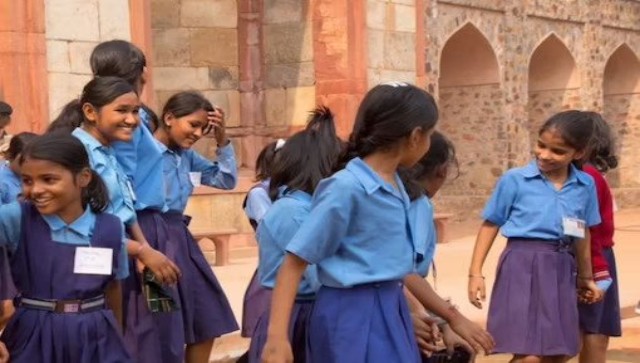We live in a multilingual world. English serves as the lingua franca for education, trade and employment, and is an essential skill for anyone wanting to succeed professionally or academically in the 21st century. English offers enormous opportunities, and one of India’s greatest advantages on the world stage, as compared to China or Russia is how conversant we are! And yet, we must take pride in our multilingualism as a nation and build our ECCE (Early Childhood Care and Education) architecture on it. The Government of India is working towards more equitable access to high levels of English language proficiency, so that educational and career opportunities can be inclusive rather than exclusive, open to all socioeconomic groups. But English alone is not enough. We emphasise the need for multi-lingualism in our recently released Pencil Power Report. Here’s what our experts say 1. Indian parents’ rush to teach alphabets and numbers to kids- this is a misguided approach. Reading is only 5000 years old . The brain hasn’t yet decided to allocate a piece of tissue for reading. Therefore, reading has to be taught. Unless children are taught to learn to read, they will not read to learn. And the basis of this, is the mother tongue. 2. A country like Finland has 100 percent literacy, because all kids learn to read Finnish from four years of age. Finnish is also a very transparent language like most Indian languages. The need is to ‘build understanding and then reading’, so don’t start with English or a language that the child does not know. If we can have a simple understanding of the best principles, literacy and language learning is very doable. In fact, just this Oct 2022, Union Education Minister Dharmendra Pradhan released the National Curriculum Framework (NCF) for foundational stage education, which recommends that the mother tongue should be the primary medium of instruction for children till eight years of age, in both public and private schools. 3. We should take pride in the fact that children in India are going to be multilingual and multi-literate. There is great value in learning multiple languages – it’s good for the brain and helps to form connections and makes life so much richer, culturally. 4. It is possible to create a technology based, self-sustaining ECCE architecture is a plug and play model that can be used across multiple devices, in multiple languages, across the country. Think of the ‘child’ as the ultimate beneficiary of this system. 5. The United Nations Educational, Scientific and Cultural Organization (UNESCO) is also promoting multilingualism as a way to preserve linguistically diverse societies, sustainability and inclusion in education. This is part of its Sustainable Development Goals. It believes that multilingualism is key to preserving peace and security around the world. 6. An understanding of English and multilingualism is especially important in an age of increased and rapidly growing international migration. People migrate for many reasons – escaping oppression and war, searching for better opportunities – but it is clear that the languages that they have access to or aspire to use can greatly influence the pattern of migration and the success with which migrants are able to integrate and contribute to their host societies. 7. A properly managed language policy can help to ensure that English can be taught effectively and incorporated into society without having a negative effect on the first language, culture and local identity of the learners of English. Multilingualism in education has been a controversial subject in the past with people believing that children who learn multiple languages would be at a disadvantage. Nothing could be farther from the truth. 90% of all brain development happens before the age of five. Hence, small children can absorb language effortlessly but if the child doesn’t know the spoken language on which you are trying to build reading skills, this will not work smoothly. A play- based not pressure based approach, is ideal for ECCE. This is what we advocate. Summing up, the role of compulsory education is critical and we need a language education policy which both respects mother tongue heritage and also prepares young people for a globalised world with English as a lingua franca. The author is the Head, Square Panda, Global Operations. Views are personal. Read all the Latest News , Trending News , Cricket News , Bollywood News , India News and Entertainment News here. Follow us on Facebook , Twitter and Instagram .
Language education policy should be inclusive to mother tongue while preparing children for globalised world
Ashish Jhalani
• November 18, 2022, 12:55:56 IST
Role of compulsory education is critical and we need a language education policy which both respects mother tongue heritage and also prepares young people for a globalised world with English as a lingua franca
Advertisement
)
End of Article